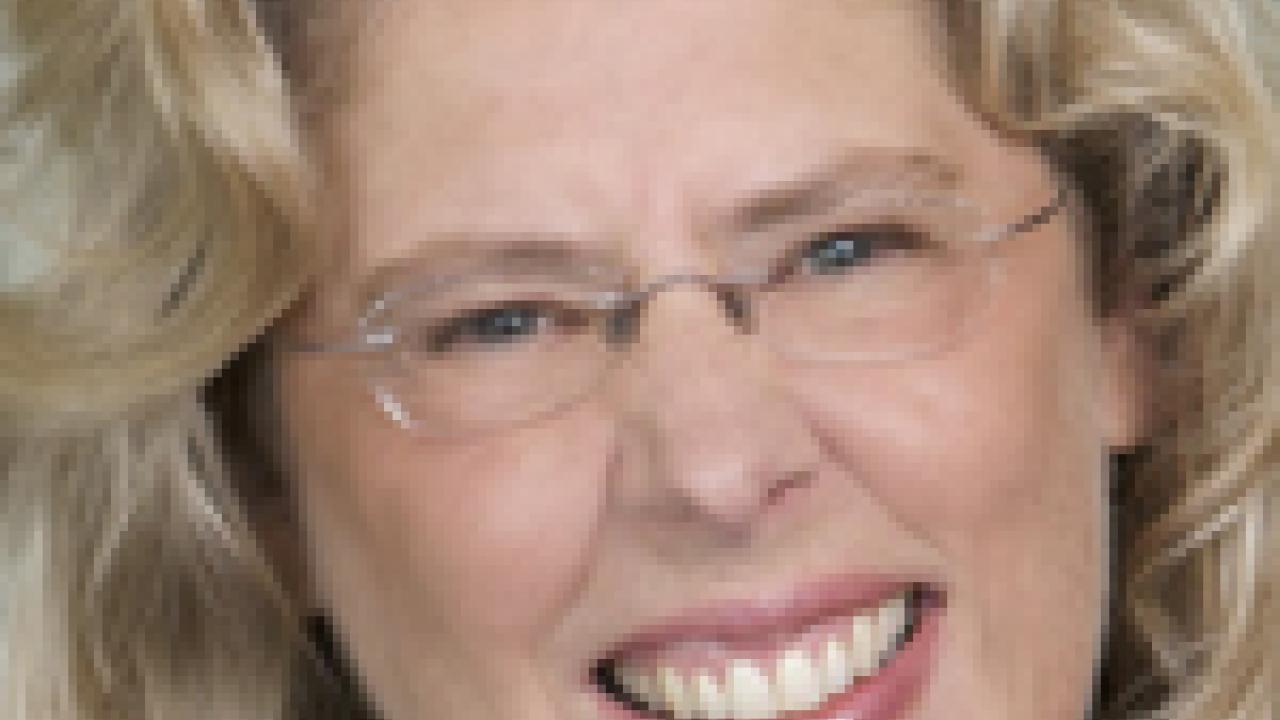The UC Davis Health System is gaining widespread recognition for its academic and clinical excellence and social justice commitment, even while it faces financial difficulty, said Claire Pomeroy, vice chancellor, Human Health Sciences and dean of the School of Medicine, in her Jan. 13 State of the Health System address.
Describing comments she frequently hears during her travels around the country, Pomeroy said, “What I hear is: ‘Boy, special things are happening at UC Davis.’ They are impressed with our bold vision for a bright future.”
In the future, Pomeroy envisions the health system asserting its influence more broadly, on a national scale.
“I want us to be the voices that lead to the future of health care,” she said.
Pomeroy said that the health system’s aspirations align well with “a new era” at UC Davis, as exemplified by new Chancellor Linda Katehi.
“Within her first 100 days at UC Davis, Chancellor Katehi said that we need to think bigger. We need to have a bigger impact,” she said.
Part of Katehi’s vision for UC Davis includes becoming one of the top five public research universities in the country and raising $1 billion in philanthropic support.
Pomeroy noted that Katehi has stated that UC Davis Health System is essential to UC Davis realizing its bold vision. “That’s exciting. It’s also a lot of responsibility,” she said.
State budget cutbacks
The drive toward higher prominence is occurring “in an era of amazing financial realities,” she said.
Leadership must be open about the university’s financial situation, she noted. State funding for the UC was cut by $813 million in 2009, which resulted in a reduction of $8.1 million in state funds for the health system.
“And that doesn’t include the tremendous rise in the amount of charity care we provide and the bad debt we incur,” Pomeroy said.
The UC Davis Health System has 15 percent of the inpatient market in Sacramento, yet provides 59 percent of the indigent care. This translated to $165 million in uncompensated care in 2009 (up from $102 million in 2008), in addition to the $55 million in bad debt (up from $42 million in 2008). Pomeroy said there is an urgent need to find new models in Sacramento that are community-wide solutions.
Although Pomeroy said these “financial realities” cannot help but have an impact, the health system will not only continue to strive to improve health in the Sacramento region, it will remain intent on addressing global health challenges.
Because of continuing and anticipated shortfalls in public funding and reimbursements, fundraising will remain a high priority for the health system. A particular emphasis is on scholarships for medical students because, Pomeroy said, medical students commonly graduate with debt of up to $200,000, which limits their ability to practice medicine in certain specialties and in rural areas.
Pomeroy said that all health system employees should embrace the role of raising funds.
“Fundraising is not the job of only professional fundraisers,” Pomeroy said. “It’s the job of everyone. Every time you interact with your neighbors or your friends and you are discussing the health system, you are fundraising. So, go for it!”
David Ong is a senior public information representative for the UC Davis Health System.
Media Resources
Clifton B. Parker, Dateline, (530) 752-1932, cparker@ucdavis.edu
